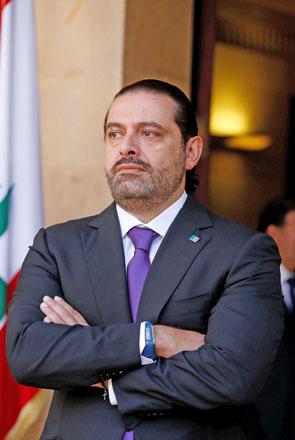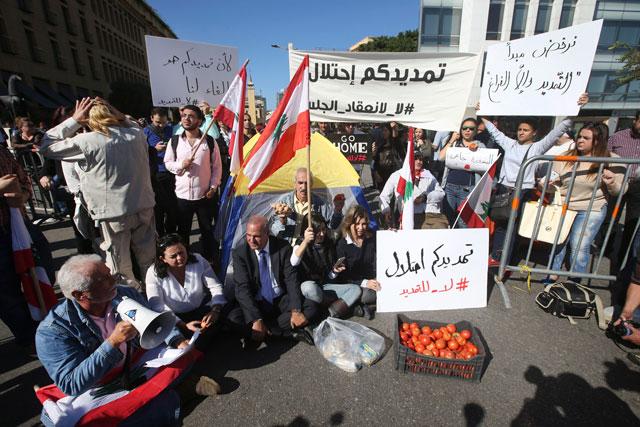BEIRUT — Lebanese Parliament Speaker Nabih Berri urged Kuwait to keep trying to build bridges between Iran and Saudi Arabia to encourage a rapprochement between two regional heavyweights backing opposite sides in Syria’s civil war.
Wedged between three big regional powers — Shiite Muslim Iran, Sunni Muslim Saudi Arabia and Shiite-led Iraq at the northern end of the Gulf, Kuwait has tried to maintain good relations with all three in recent years. The oil-exporting Gulf Arab state is a Sunni Muslim monarchy but has a sizeable Shiite minority active in politics and business.
All of this makes Kuwait a potential go-between in the intractable conflict between Syrian President Bashar Assad — whose strongest regional ally is Iran — and Saudi-backed Sunni rebels trying to overthrow him.
Berri spoke during a visit to Kuwait two days after Lebanon formed a new government in a possible step towards curbing the sectarian violence that has spilled over into Lebanon from neighbouring Syria.
“I requested that all the Gulf [Arab] countries and in particular Emir Sheikh Sabah Al Ahmad play a mediating role between the Islamic Republic of Iran and the Kingdom of Saudi Arabia,” Berri told the Kuwaiti newspaper Al Rai in the remarks published on Tuesday.
“The emir has worked and will work in this context, and he will try as much as possible to bring together the points of view,” Berri said, referring to Kuwait’s leader.
Sheikh Sabah was foreign minister for four decades before becoming emir and is often described as one of the top diplomats in the Gulf region. He was dubbed the “dean of Arab diplomacy” for helping restore relations with Arab states that supported Saddam Hussein’s Iraq during the 1990-91 Gulf War when Kuwait was occupied by Iraqi forces.
Region divided over Syria war
Iran has been a stout ally of Assad in his battle with a Sunni Muslim-led armed uprising bent on ending 44 years of his family’s rule.
The Islamic republic has provided military support and billions of dollars in economic aid to Assad, whose Alawite sect is an offshoot of Shiite Islam which is dominant in Iran.
Saudi Arabia, for its part, has provided funding and support to various rebel groups, including the Western-backed Syrian National Coalition and more radical Islamist factions.
Berri is the highest ranking Shiite in Lebanese officialdom and an ally of Iran and Assad. His Amal movement is part of a Lebanese alliance including Hizbollah, a powerful Shi’ite militant movement that has sent fighters to aid Assad.
“My larger goal on the topic of Iranian-Saudi rapprochement ... is for the benefit of Lebanon and of Syria,” said Berri. He blamed the breakdown of peace talks in Geneva last week on Iran’s exclusion from the conference.
“It would have been better to invite Iran to Geneva and to have Saudi-Iranian rapprochement,” he said.
The United Nations rescinded its invitation to Iran to participate in the “Geneva 2” talks at the last minute under pressure from the opposition delegation, which threatened to withdraw altogether.
Berri also called on Monday for Lebanon’s presidential elections to be held before May 25 in accordance with constitutional procedures.
Lebanon announced the formation of a new government on Saturday after a 10-month political deadlock during which spillover violence from Syria worsened internal stability.
The small Mediterranean state has been struck by car bombs, rocket attacks and street fighting linked to the nearly three-year conflict in Syria, where more than 140,000 people have been killed and millions displaced.
















